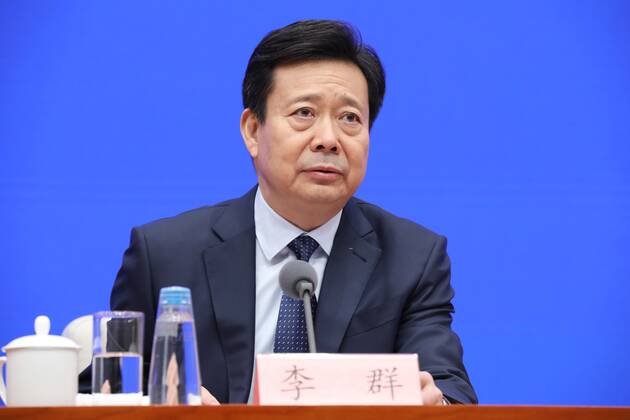(TibetanReview.net, Nov21’22) – China insisted on sending a vice-minister for a visit despite being told that Nepal was in the midst of federal and provincial polls and was left with no top government and opposition leaders agreeing to see him after he arrived, reported the swarajyamag.com Nov 16. Both Prime Minister Sher Bahadur Deuba and Foreign Minister Narayan Khadka turned down requests for meetings. So also, the country’s communist party leaders.
When requested to postpone the visit, since countrywide elections were nearing and everyone would be busy with the massive exercise, China persisted, saying the visit of its Vice Minister for Culture and Tourism, Mr Li Qun, would be a “purely personal” one. He would only visit cultural and heritage sites in Nepal that had been damaged or destroyed during the 2015 earthquake and were being reconstructed with Chinese assistance, Nepal was told.
But after the Chinese delegation headed by Minister Li, who also heads his country’s National Cultural Heritage Administration, landed in Kathmandu on Nov 11, the Chinese embassy in Kathmandu put out requests to Nepal’s Prime Minister’s Office (PMO) and the Foreign Office for meetings with the Prime Minister and the Foreign Minister.

Both of them refused, citing prior commitments. The embassy was told that both were busy campaigning in other parts of the country and therefore would not be able to meet the visiting Chinese minister.
But a bigger snub awaited Beijing when even the leaders of the two major communist parties — the Communist Party of Nepal (Unified Marxist–Leninist)-CPN (UML) headed by former prime minister Khadga Prasad Sharma Oli, and the CPN (Maoist) headed by Pushpa Kamal Dahal, turned down requests for meetings with their leaders.
Oli, a former Prime Minister and considered the most pro-China of Nepali leaders, conveyed to the Chinese that he was busy with campaigning and so wouldn’t be able to meet Li, the report said.
“Oli perhaps realised that meeting the visiting Minister would expose him to criticism since other Nepali leaders were not meeting Qun. Had Oli met the Chinese, he would have had to face a lot of flak and his rivals would have quickly accused him of being Beijing’s lackey,” political analyst Ram Shrestha has said.
And so, Li and the officials accompanying him visited Kathmandu’s Durbar Square where the Chinese had helped reconstruct the Basantapur Palace complex, the Bhaktapur Durbar square, Swayambhunath, Patan Durbar square and the National Museum at Pashupatinath over the five days that the minister was in Nepal, the report said.
Li and his delegation flew off to Hong Kong on Nov 15, their primary mission of meeting Nepal’s top leaders in an apparent bid to influence the polls remaining unaccomplished, the report added.
Earlier, in 2017, Beijing brokered an alliance between the two major communist parties of Nepal — the CPN (UML) and the CPN (Maoist). The alliance swept the federal and provincial polls that year and formed the government under Oli as the Prime Minister. Beijing then midwifed the merger of the two parties into the Communist Party of Nepal (CPN) in 2018.
But the alliance came apart due to intense and bitter rivalries between Oli and Dahal and the CPN disintegrated. Dahal withdrew from the alliance, leading to the fall of the Oli government in July last year. All Chinese attempts, made with an amount of desperation, to effect a truce between Oli and Dahal and save the Oli government failed.
Nepal went to the polls on Nov 20; the results will takes weeks to become fully known.
The current election pits the ruling alliance of the Nepali Congress party, led by Prime Minister Sher Bahadur Deuba and some former Maoist rebels, against the Nepal Communist Unified Marxist Leninist party. Observers have predicted a hung parliament – or a win for the ruling alliance – and a government that is unlikely to provide the required stability, noted the timesnownews.com Nov 20.


